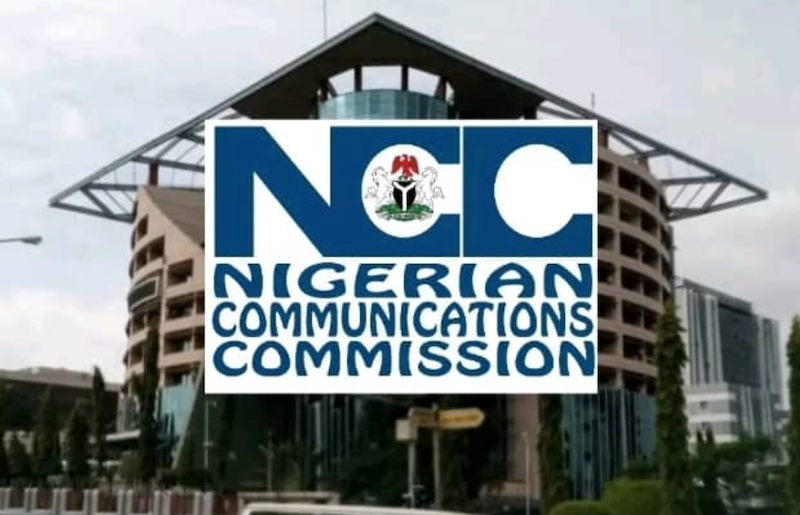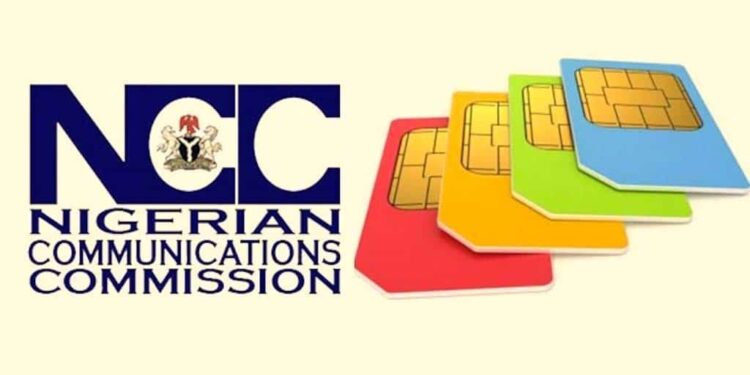The directive by the Nigerian Communications Commission (NCC), that telecom operators should pay compensation to their subscribers for prolonged network outages and also report such outages on the Commission’s Major Outage Reporting Portal, is a good one which aligns completely with the transparency garb the Commission has adorned over the years.
“By providing consumers and stakeholders in the telecommunications industry with timely and transparent information on network outages, we are entrenching a culture of accountability and transparency. This approach also ensures that culprits are held responsible for sabotage to telecommunications infrastructure,” said Engr Edoyemi Ogor, Director, Technical Standards and Network Integrity.
The three types of network outages identified in the Directive on Reportage of Mobile Network Outages by Mobile Network Operators (MNOs), are as follows: Any network operational condition such as fibre cut due to construction/access issues/theft and vandalism and force majeure that impacts five per cent or more of the affected operator’s subscriber base or five or more Local Government Areas (LGAs); having an occasion of unplanned outage of, or complete isolation of network resources in 100 or more sites or five per cent of the total number of sites (whichever is less) or a cluster that lasts for 30 minutes or more; and lastly, any form of outage that can degrade network quality in the top 10 states based on traffic volume as specified by the Commission from time to time.
According to the Directive, service providers and other operators that provide last mile services, will have to provide proportional compensation, including extension of validity, as may be applicable and in line with the provisions of the Consumer Code of Practice Regulations, where any major network outage continues for more than 24 hours.
The NCC is only walking on familiar terrain in pushing the frontiers of its transparency policies with the expectations that they can improve the subscribers’ quality of experience on the various networks.
For instance, after a rebasing of the telecommunications industry following the conclusion of the NIN-SIM Linkage Policy of the government, the subscriber base of the industry tumbled from 219,304,281 in March 2024 to 153,323,316 in September of the same year. It was a most audacious step taken by the regulator, like treading in a terrain where only eagles dare.
Without being mischievous, rebasing in this part of the world is a euphemism for cooking up figures, where inflation figures crash to the earth but pangs of hunger increase in the stomachs of the populace as many more slip into multidimensional poverty. Rebasing is like telling the untruth to make the relevant authorities happy. But the NCC broke ranks as it did something shockingly different from a tradition encouraged in the past. The regulator captured the development as a discrepancy in data submitted by a mobile network operator. Looking back now, it was much more than that because there were losers across networks.
The loss by Globacom Nigeria (GLO) was the most substantive, shedding a whopping 42m lines. The organisation accommodated the development with unexpected equanimity and started a rebuilding process. The brand remains as strong as ever as it has managed to stave off what would have been very damaging to a comprehensive effort by a Nigerian organisation to rule the telecommunications world.
9Mobile lost close to three million lines but this is only superficial in contemplation. The organisation has endured a checkered history which has taken it from a rambunctious height to an all time low of about 3.2m by January 2025. Over the years, it has lost over 20m lines which were probably not captured in the rebasing exercise.
I want to humbly observe that in pursuit of transparency, the NCC has not been afraid to take some hard decisions that may have affected its history of achievements. It has not been afraid to take decisions that bruise the ego. The regulator simply waved off grandstanding for the truth. It is creating its own standards for which it is ready to be judged.
For those ready to judge the industry so quickly, can we also have an equal measure of regulatory practice in other sectors so that we can really begin to lay the enduring foundation for a digital economy? Let’s take a cursory look at the power sector, for instance. The sector is regulated by the Nigerian Electricity Regulatory Commission (NERC). The agency has created competition in a market that is trying to divide only about 6000 megawatts of electricity for a population of about 230m people (no real figures, everything is based on estimates).
So, there is a competition in the sector that hardly exists. The services are so poor and the operators so arrogant that complaining is like pouring water on a rock. It has little or no effect. There can be an outage for weeks and months and nobody really cares. People grumble as they operate their generators and solar/inverters, and they are on their own. The other day, the Presidency decided to tabernacle with the inconvenient truth by deciding to go for solar installation, either as primary or alternate source of energy? I am not sure NERC weighed the implications of such unusual development.
Let’s take another tiny look at the aviation sector which is regulated by the Nigeria Civil Aviation Authority (NCAA). Without water in my mouth here, let me state that Mr Festus Keyamo (SAN) remains about the best aviation minister that country has had in recent times. He is trying to lift the sector which is like trying to raise the titanic, so problems abound that confound even the best efforts.
There are fewer planes flying in the Nigerian air now, that is not Keyamo’s problem. But delays and outright cancellations remain more manifest than punctuality. A 2pm fight can be pushed to 8pm at night. Yet the passenger remains grateful that the flight happened at all when he contemplates the scandalous headache of making the journey by road. There is a regulator in the sector which threatens fire and brimstone all the time, just to provide materials for the gullible media, nothing happens beyond public ostentation of anger. Complaints are overlooked well enough to discourage those who would ever build the spirit of remonstration.
Foreign airlines come into Nigeria with funny looking planes but take a flight from Europe to any other part of the world, you get the clear difference between Coca Cola and 7UP, between pure water and bottled water, and between light and darkness. Our aviation sector is so “down below” that the regulatory agency is unable to call the foreign airlines to order.
What is the point in all these? That our regulatory agencies need to be able to look at what other agencies are doing in order to learn valuable lessons that can help fix their sectors and by extension contribute to building the larger economy. We really don’t need to import every valuable thing, including knowledge, from the outside world.
It is my submission that there is so much that we can learn from the sincerity of NCC, an organisation that can sincerely introspect and demonstrate the boldness to fix its internal weaknesses and attract the glory concomitant with such bold endeavour.





